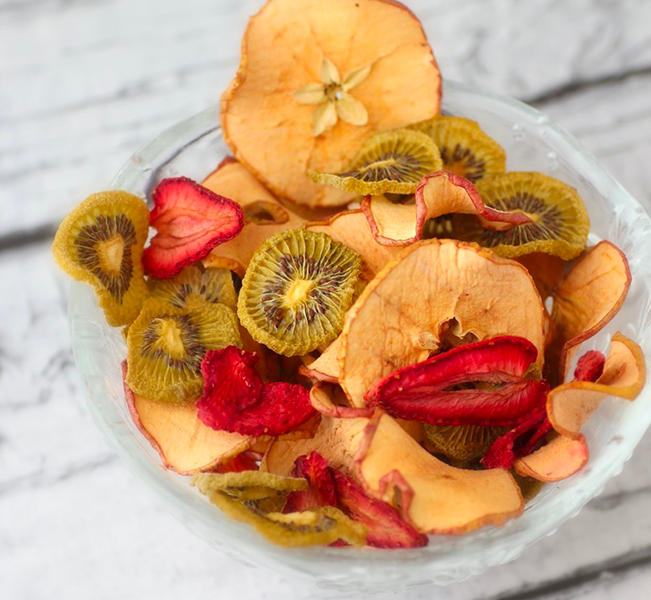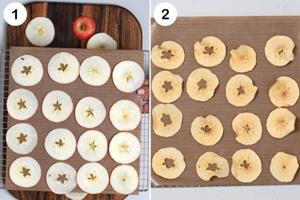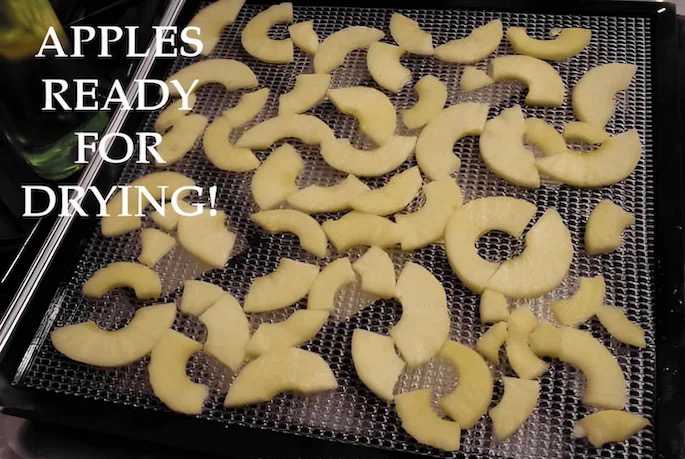
Content Menu
● Why Dehydrate Apples?
● Choosing the Right Apples
● Equipment Needed
● Ingredients
● Step-by-Step Instructions
>> 1. Preparation of Apples
>> 2. Pretreatment (Optional)
>> 3. Arranging in the Dehydrator
>> 4. Setting Up the Dehydrator
>> 5. Testing for Doneness
>> 6. Cooling and Storing
● Benefits of Dried Apples
● Nutritional Value of Dried Apples
● Creative Ways to Use Dried Apples
>> Apple Chips
>> Baking Ingredients
>> Trail Mix Ingredient
>> Rehydrated Apple Dishes
● Recipes Featuring Dried Apples
● Conclusion
● FAQ
>> 1. How long does it take to dehydrate apples?
>> 2. Can I use any type of apple?
>> 3. Do I need to peel the apples before dehydrating?
>> 4. How should I store dried apples?
>> 5. What can I do with dried apples besides snacking?
● Citations:
Dehydrating apples is not only a great way to preserve them but also transforms them into a delicious, healthy snack. This guide will walk you through the entire process of dehydrating apples using a food dehydrator, including preparation, dehydration techniques, and storage tips.

Why Dehydrate Apples?
Dehydrating apples concentrates their flavors and nutrients while removing moisture that can lead to spoilage. Dried apples are versatile; they can be enjoyed as snacks, added to cereals, or used in baking. Plus, they are easy to make at home with the right equipment.
Choosing the Right Apples
When selecting apples for dehydration, consider the following:
- Sweet Varieties: Honeycrisp, Fuji, and Gala are excellent choices for their natural sweetness.
- Tart Varieties: Granny Smith apples can add a nice contrast if you enjoy a bit of tartness.
- Organic Options: Whenever possible, choose organic apples to avoid pesticide residues.
Equipment Needed
To dehydrate apples effectively, you will need:
- A food dehydrator (e.g., Excalibur or Hamilton Beach)
- A sharp knife or mandoline for slicing
- An apple corer (optional)
- Cutting board
- Airtight storage containers for storing dried apples
Ingredients
- Fresh apples (about 5-10 depending on your dehydrator capacity)
- Lemon juice or ascorbic acid (to prevent browning)
- Optional: Cinnamon and sugar for flavor enhancement
Step-by-Step Instructions
1. Preparation of Apples
Start by washing your apples thoroughly to remove any dirt or wax.
- Core the Apples: Use an apple corer or a knife to remove the core.
- Slice the Apples: Cut the apples into uniform slices, about ¼ inch thick. Thinner slices will yield crispier chips.

2. Pretreatment (Optional)
To prevent browning and enhance flavor:
- Mix 1 tablespoon of lemon juice with 2 cups of water.
- Soak the apple slices in this solution for about 10 minutes. This step is optional but recommended for better color and taste.
3. Arranging in the Dehydrator
- Place the apple slices on the dehydrator trays in a single layer, ensuring they do not overlap. This allows for proper air circulation.
4. Setting Up the Dehydrator
Set your food dehydrator to 135°F (57°C).
- Dehydrate for about 6 to 12 hours, depending on the thickness of your slices and desired texture. Check periodically for doneness; they should feel leathery and not squishy.
5. Testing for Doneness
To test if your apples are ready:
- Remove a slice and let it cool for a minute.
- It should be pliable with no visible moisture pockets. If it feels soft or sticky, return it to the dehydrator for more time.
6. Cooling and Storing
Once done, allow the apple slices to cool completely before storing them in airtight containers.
- For longer shelf life, consider vacuum sealing them or storing them in glass jars.
Benefits of Dried Apples
Dried apples are not just tasty; they also offer numerous health benefits:
- Nutrient-Dense: They are rich in dietary fiber, potassium, and antioxidants.
- Low-Calorie Snack: A serving of dried apples is low in calories compared to many processed snacks.
- Versatile Use: They can be used in various recipes or enjoyed alone as a snack.
Nutritional Value of Dried Apples
Dehydrated fruits retain most of their nutrients while losing water content. Here's what you can expect from dried apples:
- Fiber: High fiber content aids digestion and helps maintain gut health.
- Vitamins and Minerals: While some vitamins like vitamin C may diminish during dehydration, others like potassium remain intact.
- Antioxidants: Dried apples contain antioxidants that help combat oxidative stress in the body.
Creative Ways to Use Dried Apples
Dried apples can be incorporated into various dishes beyond snacking. Here are some ideas:
Apple Chips
These crispy treats can be enjoyed as a healthy alternative to potato chips. Simply slice your apples thinly and dehydrate them until crispy.
Baking Ingredients
Use dried apple slices in muffins, cakes, or bread recipes to add natural sweetness and moisture.
Trail Mix Ingredient
Combine dried apple slices with nuts and seeds for a nutritious trail mix that's perfect for hiking or on-the-go snacking.
Rehydrated Apple Dishes
Rehydrate dried apples by soaking them in warm water or adding them directly into recipes like oatmeal or stews where they can absorb moisture during cooking.
Recipes Featuring Dried Apples
Here are some delicious recipes that utilize dehydrated apples:
1. Dried Apple Pie: A classic dessert that highlights the concentrated flavor of dried apples.
2. Dried Apple Hand Pies: Perfect bite-sized treats filled with rehydrated apple filling.
3. Cinnamon-Spiced Dried Apples: Toss dried apple slices with cinnamon and enjoy as a snack or topping for yogurt.
4. Healthy Apple Nachos: Drizzle rehydrated apple slices with peanut butter and sprinkle with nuts for a nutritious dessert.
5. Apple-Cranberry Tart: Combine dried apples with cranberries for a sweet-tart dessert experience.
Conclusion
Dehydrating apples is a straightforward process that yields delicious results. With just a few ingredients and some patience, you can create healthy snacks that last long and taste great. Whether you enjoy them straight out of the jar or incorporate them into recipes, dried apples are sure to please!

FAQ
1. How long does it take to dehydrate apples?
The dehydration process typically takes between 6 to 12 hours at 135°F (57°C), depending on slice thickness and humidity levels.
2. Can I use any type of apple?
Yes! You can dehydrate any variety of apple; however, sweet varieties like Honeycrisp or Fuji tend to yield better-tasting results.
3. Do I need to peel the apples before dehydrating?
It's not necessary to peel apples before dehydrating unless you prefer them without skin. The skin adds fiber and nutrients.
4. How should I store dried apples?
Store dried apple slices in airtight containers in a cool, dark place. For extended freshness, vacuum seal them or refrigerate.
5. What can I do with dried apples besides snacking?
Dried apples can be added to cereals, oatmeal, baked goods like muffins or pies, or even rehydrated in water for use in cooking.
Citations:
[1] https://www.freshoffthegrid.com/dehydrating-apples/
[2] https://www.webmd.com/diet/dehydrating-food-good-for-you
[3] https://www.youtube.com/watch?v=SRPK_YbDqik
[4] https://www.rachelsrealfoodkitchen.com/how-to-dry-apples/
[5] https://terradomilho.eu/2019/03/the-advantages-of-dehydrating-fruit-and-vegetables/
[6] https://cottageatthecrossroads.com/dehydrated-apple-recipes/
[7] https://chocolateboxcottage.tv/videos/how-to-dry-apples-in-a-dehydrator-best-tips/
[8] https://silva-intl.com/blog/dried-and-delicious-the-health-benefits-of-dehydrated-foods
[9] https://www.youtube.com/watch?v=SmodmUqMFYo
[10] https://practicalselfreliance.com/dehydrating-apples/











